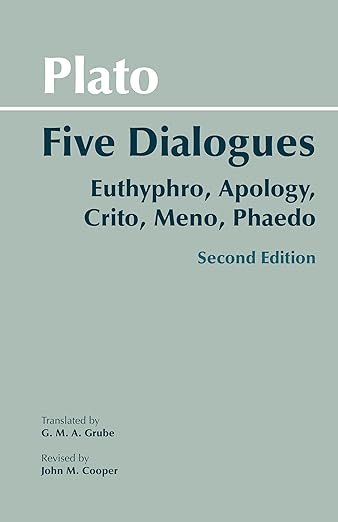Here’s the good news! You can get this one for free. Plato lived a long time ago, so all of his work is on the Internet, free of charge.
🔥 Euthyprho Rocks. In just 20 pages, Plato tackles the question: What is pious and what is impious? The goal is to determine what the relationship between morality and God is, assuming there is a God.
Here’s the main concept: Pretend that God ( he/she/it ) stood in front of a buffet of human actions to determine which ones are good and which ones are bad. According to Plato, there are two ways this could go:
- God picked the actions He favored which made those actions holy. Why? Because God picked them, and what he says, goes.
- Actions are good or bad independent of God’s choice, and he picked the good ones because they are good.
This is a lot of pontificating, I know. But it’s fun – so stick with me. Euthephro is a pretty self-righteous guy. He’s at the courthouse prosecuting his father for allowing a murderer to die. Socrates is also at the courthouse because he is being prosecuted for “corrupting” the youth.
The whole point of the dialogue is that it’s hard to define what is good and what is bad, and we shouldn’t be so trigger-happy to condemn each other or to claim religious authority over each other.
Note: Plato lived in a polytheistic culture (Belief in multiple Gods like Zeus, Hera, Apollo, etc.) This dialogue also works for a monotheistic (single God) culture, but that discussion is larger than a newsletter can accommodate. I’m currently making a YouTube video that will deep dive into Euthyphro and will cover this aspect.
Give it a read and let me know what you think.
